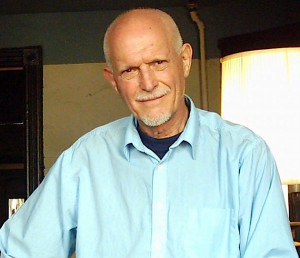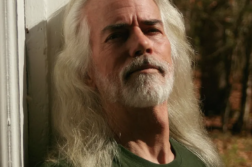NOWADAYS, when so many poets write about popular culture, it seems inconceivable that there was a time when they did not. But there was such a time. Up until the 1970s, only two poets had truly rushed in where other poets feared to tread: Frank O’Hara and Edward Field. O’Hara published his Meditations in an Emergency in 1957. That book included such pop-inspired poems as “To the Film Industry in Crisis” and “For James Dean.” Edward Field’s Variety Photoplays, which appeared ten years later (that’s quite a gap, a whole decade, but things moved slower in those days), opened with a section called “Old Movies” that included poems based on such Hollywood films as The Curse of the Cat People and Bride of Frankenstein, and even a poem about the comic strip character Nancy. The pleasures of popular culture were something new; previously they’d been viewed, at least by the high-minded custodians of art and literature, as base or low, as fodder for the masses. By openly and unabashedly embracing pop subjects, O’Hara and Field blazed new trails for the rest of us.
I first came across Variety Photoplays in the mid-’70s, when I was an undergraduate in California and a beginning poet. I still have the copy I bought at a used bookstore. (It had been presented as a gift to its original owner: “For my friend Theodore” from one “Mather Lather.”) Poems about movies? This was a new and exciting concept (I was overdosing on the Modernists at school), one that would have a profound, long-lasting effect on my own work. These movie poems, with their long lines and conversational tone, their wry humor, and their joyful rehashing of plots of old movies I’d seen on The Late Show, have lingered in my consciousness throughout my entire writing life.
We forget (now that movies are so readily available via DVD, YouTube, and streaming) that there was a time when movies played for a limited run in theaters and then disappeared, only to be seen thereafter on television (usually in the small hours) or at art houses (like Variety Photoplays on Third Avenue in New York, whose marquee is pictured on the cover of Field’s book), and lived primarily in  our memory and imagination. That’s precisely what Field’s poems enact for us: the way films once flickered in the dark theaters of our minds. The doomed cat woman, with “the glitter in her slitty eyes and her catlike walk.” The monster, “knobs sticking out from each side of his neck,” who, pursued by the mob of “ignorant villagers,” finds a moment of peace with the blind man who “has long dreamed of having a friend / to share his lonely life.” Joan Crawford working behind the counter of the five-and-dime “wearing her made-over dress with little washable collar and cuffs.” But climb to the top of the social ladder Joan must, and does by the end of the movie—and the poem.
our memory and imagination. That’s precisely what Field’s poems enact for us: the way films once flickered in the dark theaters of our minds. The doomed cat woman, with “the glitter in her slitty eyes and her catlike walk.” The monster, “knobs sticking out from each side of his neck,” who, pursued by the mob of “ignorant villagers,” finds a moment of peace with the blind man who “has long dreamed of having a friend / to share his lonely life.” Joan Crawford working behind the counter of the five-and-dime “wearing her made-over dress with little washable collar and cuffs.” But climb to the top of the social ladder Joan must, and does by the end of the movie—and the poem.
What permission these poems gave. It’s OK to love movies enough to write poems about them. It’s OK to write about what you have experienced, what you know, no matter how “base or low.” In fact, it’s our duty: there’s something sacred about these screen stories. We must preserve them (and our wonderment, our innocence, our youth) by retelling them, as if around a campfire. Field’s movie poems have that kind of hallowed glow. And respect for the dark side of reverence: the “brightest lights,” he knowingly tells us, “cast the deepest / shadow.”
“Magical Movie Moments: ‘Bahamas’” is a more intimate Edward Field movie poem. It appeared thirty years after Variety Photoplays, in his 1998 collection A Frieze for a Temple of Love. In this straightforward depiction of the pleasures that can occur between strangers in a darkened movie theater (of a sort that Frank O’Hara called “sheer gravy” in “Ave Maria”), Field’s own youthful sexual experience dovetails with the Technicolor romance on the screen. The two plots beautifully commingle:
We leaned against each other in the darkness
of the back row of the orchestra,
leg pressed to leg,
and as the music swelled
for the glossy lovers on the screen,
we held each others’ stiff pricks
under his luxurious coat across our laps,
and brought each other off
for a happy ending.
This sort of explicitness—couched in Field’s customary language, direct yet carefully modulated—is a hallmark of his later work. How can the unprejudiced reader not love him for it? I do. In fact, Field’s work contains just about everything I treasure in poetry: popular culture, honesty, authentic speech, sexual explicitness, humor, political incorrectness. I suspect, no, I know for a fact, that Field has taken hits in the poetry establishment for his style and his subject matter. A contemporary of Field’s, a Pulitzer-winning bore, once lamented, “If only I’d gotten hold of him when he was young, I could have made him a good poet.” Such condescending remarks make my blood boil. As if in response to his contemporary, Field has written: “the biggest sin of poetry is to be boring, and, frankly, it’s so often boring.” And as if in response to criticisms of his style: “Being obvious is no crime. And hopefully and God willing, it will have a couple of laughs in it, to make life less grim.” I turn to Field’s poetry when I need a couple of laughs, when I need to hear the truth plainly spoken.
Of course Field’s body of work consists of more than just movie poems, but it’s to his movie poems that I most often return. They comfort and inspire me. (That sounds religious, and rightly so.) I recently gave an extra copy of Variety Photoplays to one of my graduate students. After reading it, she wrote a wonderful homage to Desperate Housewives. Field’s poems continue to give permission, continue to open doors. When I recently rewatched Taxi Driver, a shot of the pink and baby blue neon marquee of the Variety Photoplays Theater took my breath away. My first thought, naturally, was of Edward Field. Here, for the record, is a non-movie Edward Field poem that I love:
People who eat in coffee shops
People who eat in coffee shops
are not worried about nutrition.
They order the toasted cheese sandwiches blithely,
followed by chocolate egg creams and
plaster of paris
wedges of lemon meringue pie.
They don’t have parental, dental, or medical figures hovering
full of warnings, or whip out dental floss
immediately.
They can live in furnished rooms and
whenever they want
go out and eat glazed donuts along with
innumerable coffees,
dousing their cigarettes in sloppy saucers.
That, in my estimation, is a perfect poem. And a perfect pop poem, to boot. I see Claes Oldenburg’s giant “Pie à la Mode” or one of Wayne Thiebaud’s pastry paintings in Field’s “plaster of paris / wedges of lemon meringue pie.” Thank you, Edward Field, for paving the way.
David Trinidad is a widely published poet based in L.A. His latest book is Peyton Place: A Haiku Soap Opera (2013).





